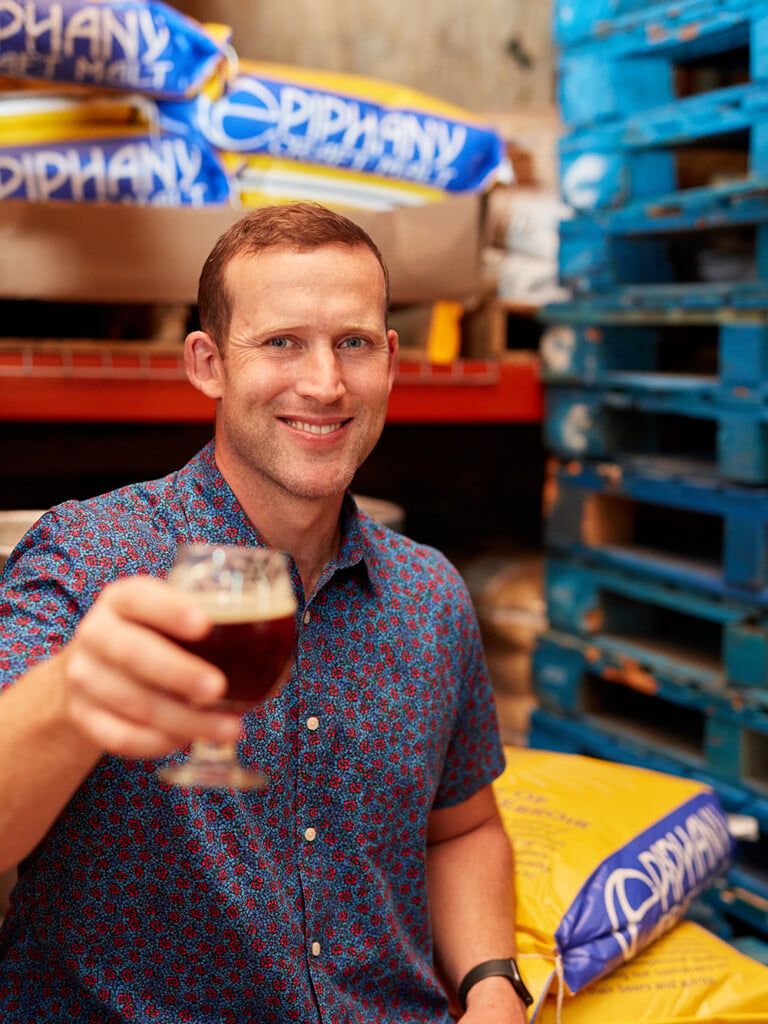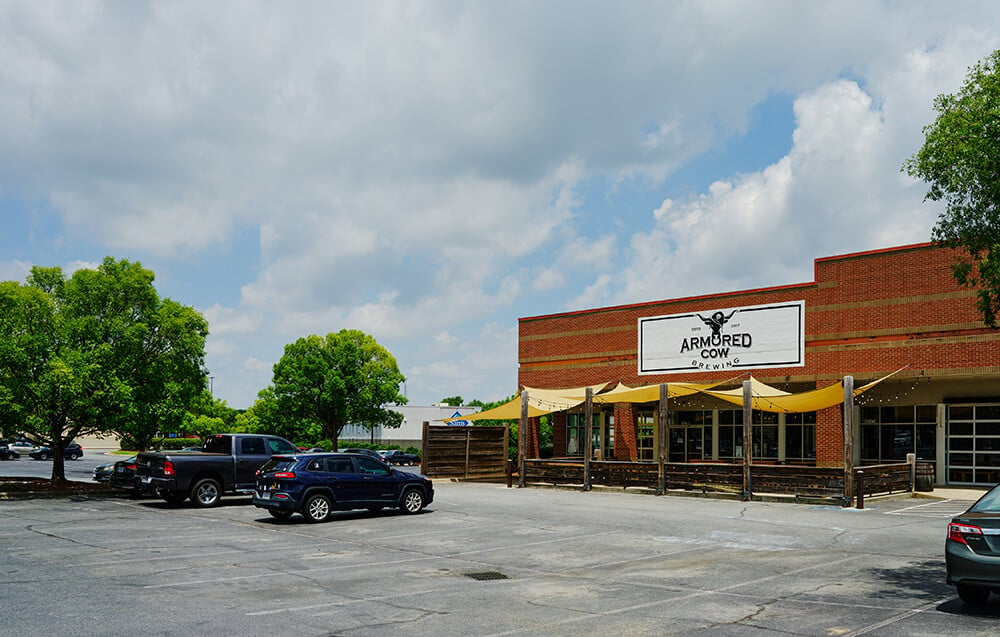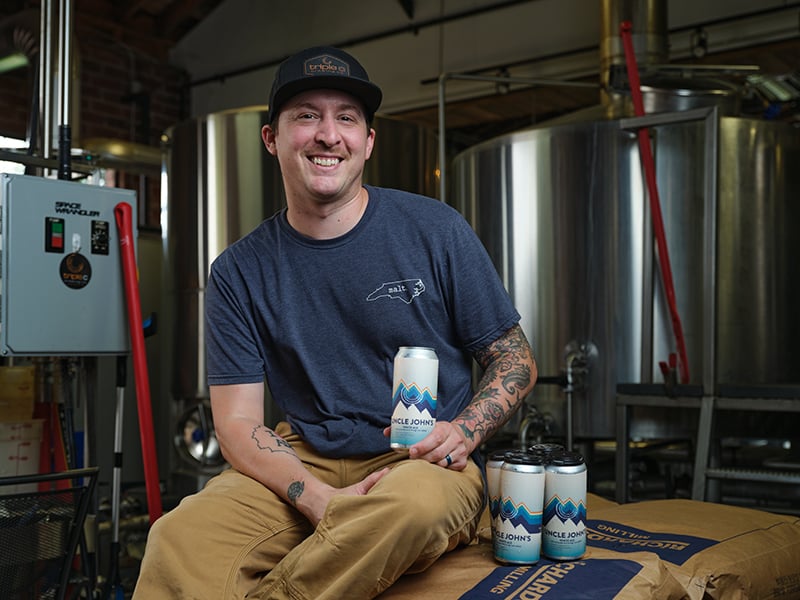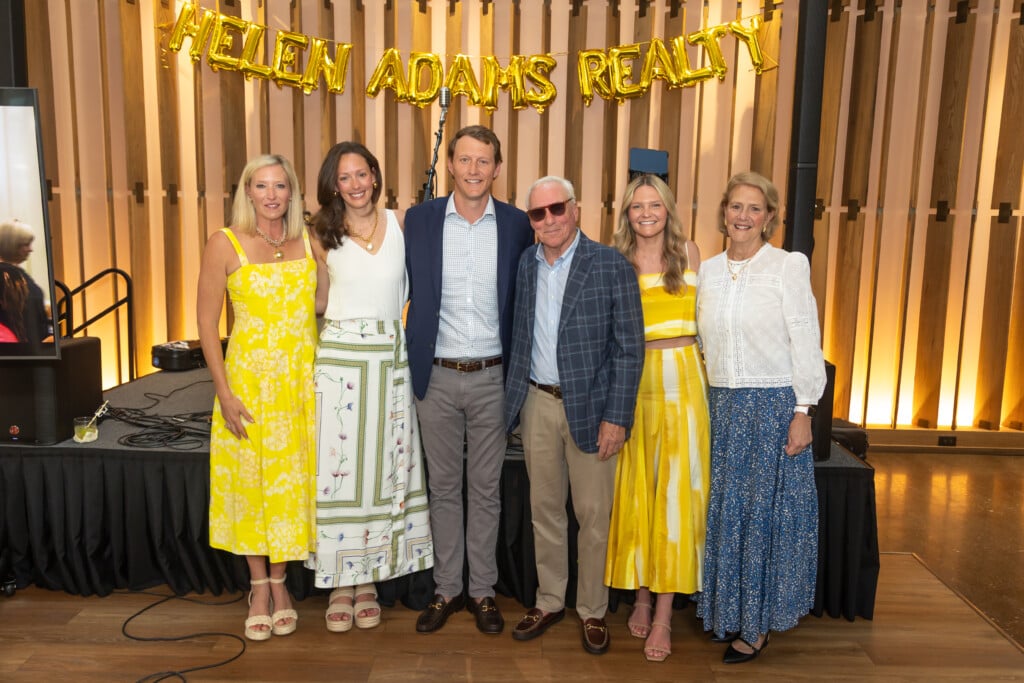The Next Year in Charlotte Beer
Without a map, independent breweries try to prepare for the road ahead
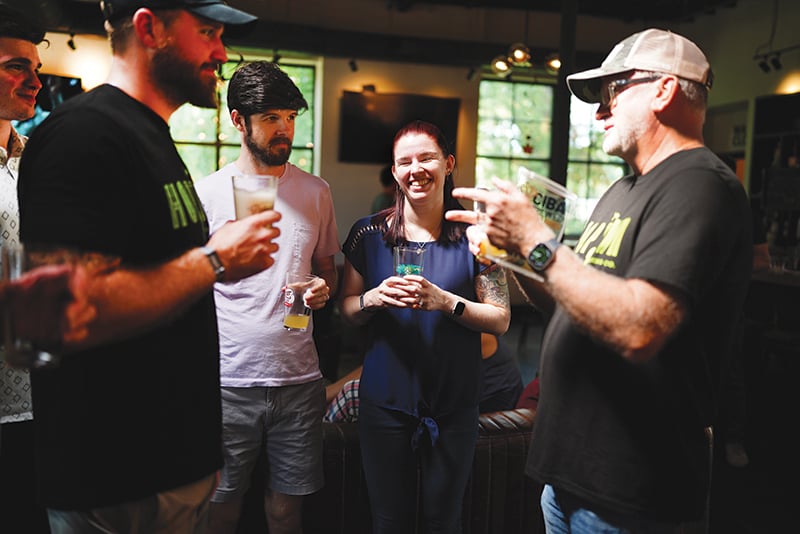
Where is Charlotte’s beer scene going? On this warm, late-September Saturday, it’s come here to Pinhouse, a self-serve beer bar on Central Avenue in Plaza Midwood. The occasion is the Charlotte Independent Brewers Alliance’s CIBA Brewed Awards, a highlight of the organization’s four-day Brewed Weekend.
CIBA, the main organization for Charlotte’s craft brewers, hosts a multi-day program of events every year. Its first was in May 2022, and it stretched over a week. Organizers scaled it back this year. “When you have seven days of events, and you’re trying to get those consumers out to those events,” says Executive Director Heather Harris as she sets up, “that can be a lot.” CIBA plans another Brewed Weekend in 2024. Today, the sun pours through floor-to-ceiling windows that overlook Veterans Park, and owners, brewers, and employees gather near the 72 taps and sip from pint glasses as they chat.
The discussions encompass every issue brewers face in an urban craft brewing scene exploding around them. Do they expand or not, and when? How do they balance flagship beers, which sell best, with unique seasonals that distinguish them from everyone else? What are their target markets, and how do they differ in the city versus the suburbs? How much should they distribute to grocery stores? Does demand exceed supply or vice versa, and how do they fix either?
“It’s kind of hard to say where the industry is going,” Dennis Howell, the head brewer at Cavendish Brewing in Gastonia, says at the bar. “You can only offer so much variety. … It can be difficult, because the craft brewing industry is constantly changing.”
Change is good—#CLTBeer’s fast growth and adaptability have helped create one of the biggest independent beer markets in the South, if not the nation. But with change comes complications, and those can be good for beer but bad, or at least challenging, for business.
Suffolk Punch Brewing’s main taproom in South End typically swarms with patrons. Its owners opened an additional 11,000-square-foot taproom in SouthPark in May and plan another at Birkdale Village in Huntersville for 2024.
So what’s the problem? “Right now, we’re kind of strapped for beer just because of how much demand we’re going through in our taprooms,” says Head Brewer Brad Maas. “You know, South End’s always hustling and bustling—it’s the place to go right now—so that’s where most of our beer goes.” Their solution: an expanded production facility at North Tryon Street and Dalton Avenue in North End. They hope to start brewing there in 2024.
I’ve interrupted a conversation between Maas and Matt Moore, the head of sales for Petty Thieves Brewing, whose lone taproom is just up Dalton from the new Suffolk Punch plant site. Petty Thieves, with its less prominent location and lower profile, hired Moore in the spring to boost the profile—which included getting Petty Thieves cans into more supermarkets.
Moore says he’s worked Petty Thieves four-packs into “six or seven” Harris Teeter stores, with more to come, along with taps in additional bars and restaurants. “Just grocery in general,” he says, “but definitely continuing to distro some of our beers out there.” (“Distro” is a trendy abbreviation for “distribution.”)
Those are urban brewer problems, though. What about the ’burbs, where numerous taprooms have opened in the last year or two? Compared to their compatriots in Charlotte, they tend to be more family-friendly establishments, with food, arcade games, events, and other attractions. They usually don’t care so much about distribution. That’s not a random choice. The suburban market demands it.
“Our biggest goal is to try to sell as much product on-site as possible,” says Eric Stevens, co-owner of Traust Brewing in Mount Holly. “But I would say that lateral or horizontal expansion would be good, meaning other streams of revenue that aren’t necessarily directly related to beer. So we’re talking about event space, retail, food concepts to go with your beer.
“Growing a beer brand is hard in a market that’s got 150 breweries within 50 miles. Really being able to leverage your space, to milk every square foot for as much money as possible: That’s the goal.” You can expect that trend to continue, Stevens says, as more breweries open in Gaston, Union, Cabarrus, and other suburban counties.
For now, though, attention turns to the front of the room, where Harris and CIBA board members hand out Plexiglas plaques to the wizards behind the best lager, best wild ale, best IPA. Plenty of award winners will inhabit wherever #CLTBeer is going. Wrapping up, Harris reminds members about the chili tasting at Triple C Brewing before the Panthers game tomorrow. “Let’s grab a pint!” she says. “Cheers!”
GREG LACOUR is the editor.


